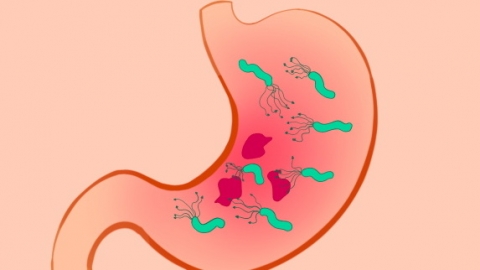How to eradicate Helicobacter pylori
Generally, eradicating Helicobacter pylori requires standardized drug therapy, strictly following medical instructions for medication, dietary adjustments, good personal hygiene, and follow-up evaluations. A multidimensional intervention approach ensures complete elimination of the bacteria and reduces the risk of recurrence. Detailed analysis is as follows:

1. Standardized drug therapy: Clinically, a quadruple therapy is commonly used to eradicate Helicobacter pylori. This involves the combined use of one proton pump inhibitor, two antibiotics, and one bismuth agent. These four drugs work synergistically to suppress gastric acid secretion, protect the gastric mucosa, and kill the bacteria through different mechanisms.
2. Strict adherence to medical instructions: During treatment, it is essential to strictly follow the dosage, frequency, and duration of medication as prescribed by the doctor. Do not adjust the dosage or discontinue the medication prematurely. The typical course of treatment for eradicating Helicobacter pylori lasts 10–14 days. Stopping medication too early may result in incomplete eradication of the bacteria, leading to drug resistance and increasing the difficulty of subsequent treatments.
3. Dietary adjustments: During treatment, dietary habits should be adjusted to avoid consuming spicy, greasy, overly cold, or hot foods that may irritate the gastric mucosa, thereby creating a favorable environment for the medication to work effectively. It is recommended to choose bland and easily digestible foods such as porridge, soft rice, and steamed eggs to reduce the burden on the stomach.
4. Personal hygiene: Helicobacter pylori can be transmitted through oral-oral and fecal-oral routes. Therefore, maintaining good personal hygiene during treatment is crucial to prevent cross-infection or reinfection. Wash hands before meals and after using the toilet, use serving chopsticks and spoons, and avoid sharing tableware or drinking cups with family members.
5. Follow-up evaluation: Four to eight weeks after discontinuing medication, a Helicobacter pylori test should be conducted at the hospital to assess the treatment outcome. A negative test result indicates successful eradication, while a positive result requires timely notification of the physician, who will adjust the treatment plan, possibly changing the type of antibiotics used, and initiate a second round of treatment to prevent long-term bacterial colonization that could lead to gastric lesions.
Eradicating Helicobacter pylori requires adherence to standardized treatment combined with scientific care. Patience and strict compliance with all requirements are necessary during the treatment period. Additionally, maintaining a regular lifestyle and avoiding excessive fatigue will support gastric recovery and bacterial clearance.







